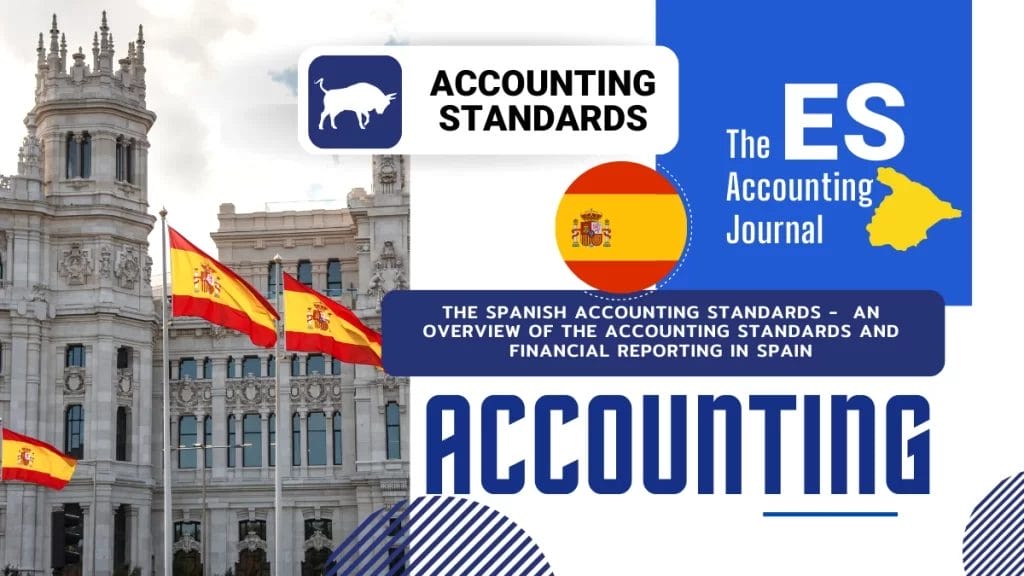The Spanish Accounting Standards: A useful overview of the Accounting Standards and Financial Reporting in Spain.
Spanish accounting standards are derived from the Spanish Commercial Code, which is a codification of commercial law in Spain. The code covers a range of topics, including company formation, corporate governance, banking and financial law, company liquidation, and insolvency.
While there are a few specific differences between Spanish accounting standards and Generally Accepted Accounting Principles (GAAP), the primary difference is that Spain’s Financial Reporting Council (Consejo Auditable de Cuentas) issues specific accounting standards for certain industries, while the Financial Accounting Standards Board (FASB) issues general guidance that companies may or may not choose to follow.
One of the most important Spanish accounting standards is the Spanish Accounting Standard 9: Consolidated Financial Statements (SAS 9), which sets out the rules for preparing and presenting consolidated financial statements. SAS 9 requires companies to consolidate all of their subsidiaries into a single set of financial statements and to disclose detailed information about the nature and extent of their ownership interests in those subsidiaries.
In Spain, the accounting standards are regulated by the Ministry of Economy and Finance. The Spanish Accounting Standards Board (AEAT) is in charge of setting accounting standards in Spain, and issues rulings and interpretations on a variety of financial reporting topics. In some cases, the AEAT’s rulings and interpretations differ from those of the International Accounting Standards Board (IASB).
For example, the IASB issued a revenue recognition standard in 2014 that allows for revenue to be recognized when goods or services are transferred to customers, regardless of when payment is received. However, the AEAT has issued a ruling that Spanish companies should continue to follow the existing revenue recognition standard, which requires revenue to be recognized when cash is received from customers.
Spanish companies are also subject to European Union (EU) accounting directives. The EU Accounting Directive (2013/34/EU) requires companies in the EU to prepare consolidated financial statements, which include the financial statements of all subsidiaries within the EU. In addition, the EU Transparency Directive (2004/109/EC) requires companies listed on an EU stock exchange to disclose certain financial information in their annual reports, including information about their subsidiaries and related-party transactions.
What are Spanish Accounting Standards?
Spanish accounting standards are the regulations and rules that Spanish companies must follow when preparing and presenting their financial statements. The purpose of these standards is to ensure that financial statements are accurate, reliable, and comparable.
There are two main sets of Spanish accounting standards: the Accounting Standards for Business Enterprises (ASBE) and the Accounting Standards for Financial Institutions (ASFI). ASBE is the main set of standards, and most Spanish companies are required to follow it. ASFI applies to financial institutions only and is mainly used for prudential reporting purposes.
Spanish companies must follow IFRS when preparing their financial statements. IFRS is also used by companies in other countries, so Spanish financial statements can be compared to those of other companies around the world.
How do the Spanish Accounting Standards differ from other countries?
The Spanish Accounting Standards (SAS) are based on International Financial Reporting Standards (IFRS), but there are some notable differences. The most significant difference is that SAS allows for a greater degree of flexibility in the recognition and measurement of assets and liabilities. This means that Spanish companies have more freedom to reflect the true economic state of their businesses in their financial statements.
Another difference between SAS and IFRS is that Spanish companies are allowed to use estimates and assumptions when preparing their financial statements, whereas IFRS requires them to use historical data wherever possible. This allows Spanish companies to be more responsive to changing market conditions, as they can make more realistic assumptions about future performance.
Another difference between SAS and IFRS is that Spanish companies are allowed to use estimates and assumptions when preparing their financial statements, whereas IFRS requires them to use historical data wherever possible. This allows Spanish companies to be more responsive to changing market conditions, as they can make more realistic assumptions about future performance.
What implications do the Spanish Accounting Standards have for businesses?
The Spanish Accounting Standards (normally referred to by their initials, IAS) are a set of regulations that govern how businesses in Spain must account for their financial transactions. The IAS was first introduced in 1989 and has been amended on a number of occasions since then.
The main aim of the Spanish Accounting Standards is to ensure that businesses in Spain present a fair and accurate view of their financial position and that their accounts are comparable with those of businesses in other countries. In addition, the IAS is intended to help investors and other stakeholders make informed decisions about Spanish businesses.
Are the Spanish Accounting Standards more or less complex than other standards?
There are many different accounting standards around the world. Each country has its own standards, which can make it difficult to compare companies from different countries.
The Spanish Accounting Standards are considered more complex than other standards. This is largely because Spain uses an accrual accounting system, while other countries often use a cash accounting system.
How do Spanish accounting standards compare to IFRS?
Spanish accounting standards are broadly in line with IFRS, with a few notable differences. The main difference between Spanish accounting standards and IFRS is that Spanish standards allow for the use of fair value measurements for certain financial instruments, while IFRS does not.
Spanish accounting standards also allow for the use of different depreciation methods for tangible and intangible assets, while IFRS requires the use of the same depreciation method for both types of assets. Additionally, Spanish accounting standards allow companies to recognise deferred tax assets and liabilities based on their estimated future taxable profits, while IFRS requires companies to recognise deferred tax assets and liabilities based on their actual future taxable profits.
Spanish accounting standards also allow companies to recognize impairment losses for both tangible and intangible assets, while IFRS requires companies to only recognize impairment losses for tangible assets. Additionally, Spanish accounting standards allow companies to recognize reversals of impairment losses for both tangible and intangible assets, while IFRS does not allow companies to recognize reversals of impairment losses.
How can businesses transition to using the Spanish Accounting Standards?
Spanish Accounting Standards (SAS) are the accounting principles and rules used in Spain. They are based on international accounting standards (IAS), but there are some differences.
Businesses that operate in Spain, or have Spanish operations, must use SAS for their financial statements. The transition to SAS can be difficult, so it’s important to understand the basics and plan for implementation.
The main difference between SAS and IAS is that SAS is based on national legislation, while IAS are based on international treaties. This means that SAS can be more complex and less flexible than IAS. However, SAS is generally more reliable as they are based on a single set of rules.

How will Spanish accounting standards affect foreign investors?
The new Spanish accounting standards, IFRS 9, come into effect in January 2019. They will replace the current standards, IAS 39. The new standards are designed to help companies manage their financial risks. They will do this by classing financial assets and liabilities into different categories, according to the risk of default.
Foreign investors who do business in Spain will need to familiarize themselves with the new standards. The changes may affect how they view Spanish businesses and could lead to a reassessment of the risks involved in investing in them.
What are the benefits of Spanish Accounting Standards?
Spanish Accounting Standards are the accounting principles and rules set by the Spanish government to regulate and standardize financial reporting in Spain. The main benefit of using Spanish Accounting Standards is that they provide a framework for companies to report their financial performance in a consistent and transparent manner. This helps investors and other stakeholders make better decisions about Spanish companies and improves the overall functioning of the Spanish economy.
Conclusion
In this article, we have provided an overview of Spanish Accounting Standards. If you’re looking for more information on this topic, we suggest contacting a professional accounting firm in Spain. They will be able to help you understand the specific standards that apply to your business.
If you found this article helpful, please go to the rest of the website for more about the general accounting standards in Spain, some of the tax reliefs in Spain, the company audit requirements and audit exemptions, understanding the Spanish tax system, or more accounting and financial topics in International Accounting, Audit, Taxation, Accounting Software, Cloud Accounting and Accounting Automation.
Read this article in: English – Dutch – French – German – Spanish



